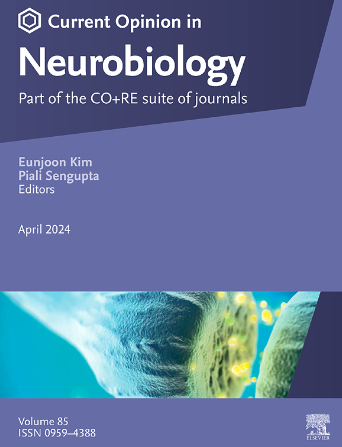Signaling in autism: Relevance to nutrients and sex
IF 4.8
2区 医学
Q1 NEUROSCIENCES
引用次数: 0
Abstract
Autism spectrum disorders (ASD) are substantially heterogeneous neuropsychiatric conditions with over a thousand associated genetic factors and various environmental influences, such as infection and nutrition. Additionally, males are four times more likely than females to be affected. This heterogeneity underscores the need to uncover common molecular features within ASD. Recent studies have revealed interactions among genetic predispositions, environmental factors, and sex that may be critical to ASD etiology. This review focuses on emerging evidence for the impact of nutrients—particularly zinc and amino acids—on ASD, as demonstrated in mouse models and human studies. These nutrients have been shown to influence synaptic signaling, dendritic spine formation, and behaviors linked to autism. Furthermore, sex-based differences in nutritional requirements, especially for zinc and amino acids, may contribute to the observed male bias in autism, indicating that interactions between nutrients and genetic factors could be integral to understanding and potentially mitigating ASD symptoms.
自闭症中的信号:与营养和性有关。
自闭症谱系障碍(ASD)本质上是一种异质性的神经精神疾病,有一千多种相关的遗传因素和各种环境影响,如感染和营养。此外,男性受影响的可能性是女性的四倍。这种异质性强调了发现ASD共同分子特征的必要性。最近的研究表明,遗传易感性、环境因素和性别之间的相互作用可能对ASD的病因至关重要。这篇综述的重点是在小鼠模型和人类研究中发现的营养素,特别是锌和氨基酸对ASD影响的新证据。这些营养物质已被证明可以影响突触信号、树突棘的形成以及与自闭症有关的行为。此外,基于性别的营养需求差异,特别是对锌和氨基酸的需求差异,可能会导致自闭症中观察到的男性偏见,这表明营养和遗传因素之间的相互作用可能是理解和潜在减轻ASD症状的组成部分。
本文章由计算机程序翻译,如有差异,请以英文原文为准。
求助全文
约1分钟内获得全文
求助全文
来源期刊

Current Opinion in Neurobiology
医学-神经科学
CiteScore
11.10
自引率
1.80%
发文量
130
审稿时长
4-8 weeks
期刊介绍:
Current Opinion in Neurobiology publishes short annotated reviews by leading experts on recent developments in the field of neurobiology. These experts write short reviews describing recent discoveries in this field (in the past 2-5 years), as well as highlighting select individual papers of particular significance.
The journal is thus an important resource allowing researchers and educators to quickly gain an overview and rich understanding of complex and current issues in the field of Neurobiology. The journal takes a unique and valuable approach in focusing each special issue around a topic of scientific and/or societal interest, and then bringing together leading international experts studying that topic, embracing diverse methodologies and perspectives.
Journal Content: The journal consists of 6 issues per year, covering 8 recurring topics every other year in the following categories:
-Neurobiology of Disease-
Neurobiology of Behavior-
Cellular Neuroscience-
Systems Neuroscience-
Developmental Neuroscience-
Neurobiology of Learning and Plasticity-
Molecular Neuroscience-
Computational Neuroscience
 求助内容:
求助内容: 应助结果提醒方式:
应助结果提醒方式:


